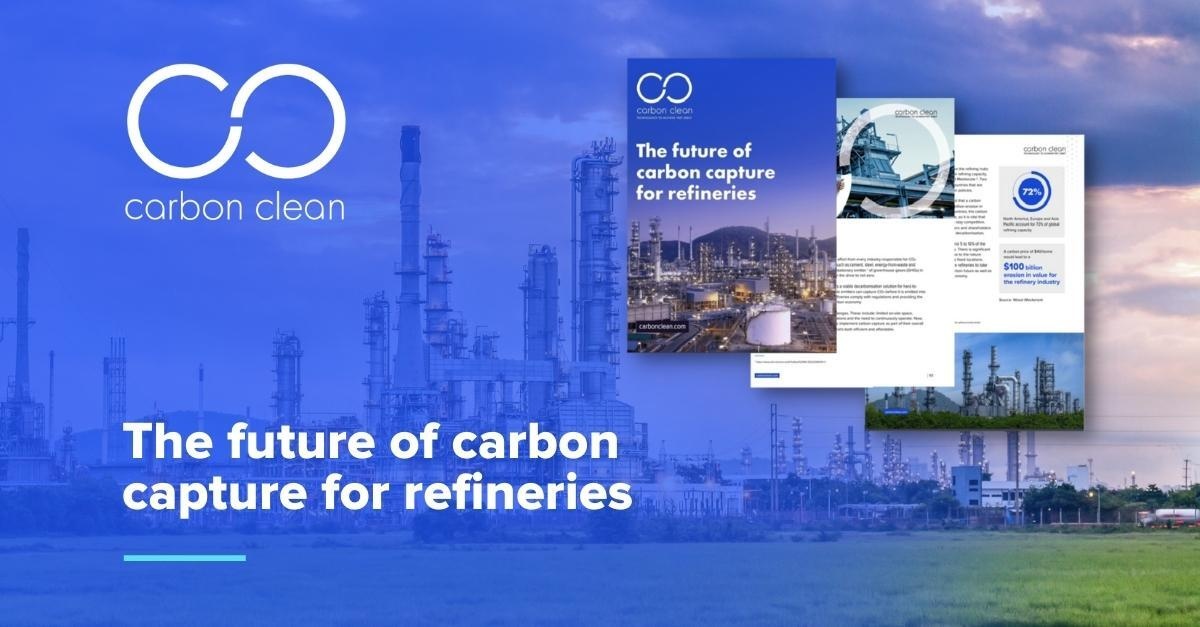Watch our latest video and learn about global policy, and how refineries can benefit from carbon capture technology.
Why are refineries such a big target for government regulations?
Refineries are the third-largest stationary emitter of greenhouse gasses (GHGs) in the world, this gives them a pivotal role to play in the drive to net zero.
Reducing their carbon footprint will enable refineries to take an active part in the transition to a low-carbon future as well as the fast-growing circular economy.
What global policies have been implemented?
Governments across the world are under increased pressure to introduce regulations to reduce emissions across industries.
In Europe, the newly updated Fit for 55 EU Climate Plan has a wide-ranging set of regulations and incentives including: support for CCUS plans across a broad range of industries and massive promotion of clean technologies. Europe’s carbon price has steadily increased over the past year, having reached a record close of €96 in February 2022.
Similarly, the U.S. are taking massive strides towards decarbonisation. The White house is now gearing up to spend more than $12 billion on CCUS and related projects.
Lastly in Canada the $8 billion Strategic Innovation Fund’s Net Zero Accelerator is dedicated to supporting projects to reduce Canada’s domestic GHG emissions. Canada is also increasing its carbon tax rates over time from $55/tonne in late 2021 to $170/tonne by 2030.
How is heavy industry reacting to new governmental policies that are being introduced?
Emission reduction targets within heavy industry are on the rise, and many of the world’s top oil and gas firms are playing a key role as first movers.
Companies including Chevron, Equinor and Saudi Aramco are seeking to tackle emissions and focus on commitments to deploy CCUS. Chevron is targeting 25 million tonnes of CO2 per year in equity storage by the end of this decade, with a focus on developing regional hubs that leverage its existing partnerships with customers, governments and industry. Similarly, Equinor is looking at the potential for hydrogen and CCUS technology in several U.S. states.
How can CycloneCC™ help refineries decarbonise?
CycloneCC is a fully modular, pre-fabricated and skid-mounted carbon capture solution that reduces the overall cost of carbon capture by up to 50% and has a footprint that is up to 50% smaller than conventional carbon capture units – making it a viable option for the refining sector.
It uses a breakthrough combination of two process intensification technologies: Carbon Clean’s advanced, proprietary amine-promoted buffer salt solvent (APBS-CDRMax®) and rotating packed beds (RPBs).
Learn more about our breakthrough carbon capture solution for refineries by downloading our latest eBook: 
- SEO Powered Content & PR Distribution. Get Amplified Today.
- PlatoData.Network Vertical Generative Ai. Empower Yourself. Access Here.
- PlatoAiStream. Web3 Intelligence. Knowledge Amplified. Access Here.
- PlatoESG. Carbon, CleanTech, Energy, Environment, Solar, Waste Management. Access Here.
- PlatoHealth. Biotech and Clinical Trials Intelligence. Access Here.
- Source: https://www.carbonclean.com/insights/government-pressure-to-decarbonise-the-oil-and-gas




